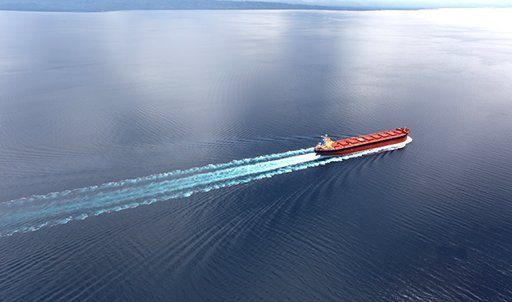Shipping’s $5bn decarbonisation R&D fund proposal comes in for attack

With the hybrid short term emissions cutting measures agreed yesterday, much of the remaining days of the 75th gathering of the Marine Environment Protection Committee will be spent discussing the merits of the shipping industry’s proposed $5bn R&D decarbonisation fund, with opposition to the proposal growing, especially from islands in the South Pacific.
Shipping’s top lobby groups have come together in unprecedented fashion for this week’s crunch environmental talks. Eight of the largest global shipping associations including BIMCO, INTERCARGO, INTERTANKO, the World Shipping Council and the International Chamber of Shipping have joined forces to urge governments to support an industry-financed decarbonisation programme.
The shipping associations are suggesting shipping lines pay a required R&D contribution of $2 per tonne of marine fuel consumed. The R&D programme, first mooted 11 months ago, would be managed through a non-governmental research and development organisation – an International Maritime Research and Development Board (IMRB).
“The IMO 2050 climate targets can only be achieved with the immediate acceleration of zero-carbon fuels and technologies, and the IMRB is a crucial vehicle for driving the progress needed to build a zero-carbon shipping industry,” the lobby groups said in a joint release.
At a briefing on the proposed fund yesterday, the groups said they want the proposal to be discussed at this year’s meeting and the next MEPC in June with a view to launching in 2023.
This proposal is not a tax, nor a market-based measure, the parties stressed yesterday.
“The proposal is carefully designed to avoid any suggestion that it is a tax (and attendant political complications) as R&D contributions will not be collected or used by governments (although IMO Member States will have robust oversight of the R&D budget),” the groups stated in a presentation yesterday.
The industry proposal however has attracted criticism. A submission of Vanuatu proposes that the scheme be brought inside the IMO organisation, rather than being a stand-alone scheme while a joint submission from the Solomon Islands and Tongo claims the industry scheme does little for less developed countries (LDCs) and small island developing states (SIDSs). The Solomon Islands and Togo said they want the IMO to press ahead with market-based measures so that the revenues generated by these can be made available to LDCs and SIDSs. The submission states that the industry scheme is too narrowly based on interest groups.
The Organisation for Economic Development (OECD) has also made a submission saying that the proposed scheme should be more closely scrutinised as it might contravene rules on state subsidies.
Splash will be reporting on MEPC outcomes all week.
